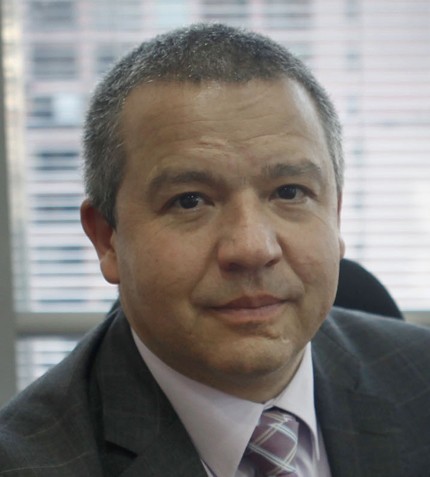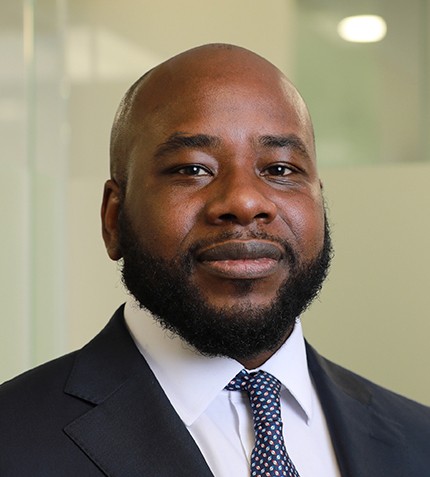
“We are enthusiastic about going forward with digitalization, and we have many systems dedicated to visualizing how to do things better and get more data from the vessels. We even have a system mapping CO2 emissions so that we can make changes to our vessels to improve emissions.”
Jarl Kåreson Hakvåg
CHARTERING SOUTH AMERICA AC/USG, ODFJELL TANKERS
What is the scope of Odfjell in international markets?
We are the second largest specialized tanker company for chemical transportation in the world. Right now we have about 87 vessels trading worldwide, with some smaller ships below 16,000 tons for regional trades. The deep fleet on this region consists of maybe four vessels a month linking South America with Europe and the U.S. Gulf, and occasionally we do some trading across from here to Asia. We take anything liquid. The commodity Chemicals/Petrochemicals are about 80% and the rest is agriculture-related products like ethanol, urea ammonium nitrate (UAN) and vegetable oils. Our headquarters are in Bergen, Norway, where we have about 170 office employees, and in addition we have 16 offices around the world, placed in very strategic countries. In the Americas, we have offices in Houston, São Paulo, Buenos Aires and Santiago. We also have a Brazilian shipping company called Flumar, which mainly performs coastal trades within Brazil and Mercosul. Beyond all this, we also own a number of tank terminals in Brazil, Argentina, Chile, Peru and the United States – in fact, we just had our 50th anniversary for the first terminal that was built in Argentina. Odfjell, as a shipping company, is 105 years old and we have been in South America for nearly 70 years.
Is there opportunity to continue growing in the region?
Import volumes are growing faster than the exports. There are many good companies here in South America always looking at increasing production locally, so there is a lot of opportunity. Argentina is coming up with a new field of shell-gas/oil that will have a positive effect for the region. It really depends on the world as well; we see that the world has a steady growth rate of about 2% per year, but the flow of these goods remains the critical challenge. The trade war between the United States and China is disrupting the normal, direct flow between these two countries, so now you get different routes. I believe that the trade war has been more positive for South America than any other continent in terms of exports.
What is your relationship with the clients?
We need to have a close relationship with them because they are also trying to generate a profit. If they need to sell cargo somewhere, they ask us how they can transport it and what the infrastructure is like at the destination, for instance in terms of storage capacity. There are many companies that want to have a foothold in the region and fortunately we can provide them both with transport and storage. In fact, we are a logistic provider and with the in-depth knowledge we have about the market, taxes, bureaucracies, legal frameworks and more, we are there to assist them.
Do you think the cabotage regulation in Brazil should change?
There is always room for improvement and as we do have a genuine Brazilian shipping company, Flumar, we are working closely with the Government and authorities to improve the cost structure and the conditions of the present shipping rules. To run a shipping company in Brazil is very challenging and costly, so we are absolutely in favor of some modifications in the rules and regulations.
How are the IMO 2020 regulations changing the logistics segment?
At Odfjell we took the decision that we are not going to retrofit the vessels with scrubbers; we are going to buy the new available compliant fuel. It will be quite a challenging market moving into 2020 as no one really knows for sure what the price level will be and the availability on a global basis. We see already some commotion in the market, because there is a queue of vessels going the docks to have the retrofitting done, and there is also a water treatment issue. They are also needing docking slots to do that. There are a lot of vessels being removed from the market because of this. The cost of doing business in shipping is going to go up as a result.
How important is digitalization, but also to have the right IT protection to avoid security issues?
You need a very strong set up and IT security. We have multifactor identification on our phones and our computers, and the office has firewall procedures. We are enthusiastic about going forward with digitalization, and we have many systems dedicated to visualizing how to do things better and get more data from the vessels. We even have a system mapping CO2 emissions so that we can make changes to our vessels to improve emissions – data is key to improving those things. Also, some of the products we carry are very hazardous and digitalization also helps to have a safer transportation.
How important is the APLA meeting for a company such as Odfjell?
APLA is important for us as an ocean logistics provider in Latin America. APLA is a meeting ground for different players in the industry, and it creates a concentrated scene were decision makers can sit down and discuss different plans and aspects affecting our businesses. Going forward in the increasingly digitalized business environment, seeing people face to face still has unsurpassed value.
APLA will celebrate its 40-year anniversary in 2020. What have been the main changes you have seen in APLA and the wider chemical industry over the last years?
Personally, I have not attended enough APLA meetings to have a valuable opinion about the changes to APLA itself, but the chemical industry has changed tremendously over the past 10 years. Fragmentation in some parts and consolidation in others, and I do not believe the general public realizes the importance of the chemical industry to everyday life, construction and consumer products. The image of the industry is sometimes misconstrued, and it takes education and understanding to break these misconceptions.
In the recent past we have observed significant strides towards some products made from types of plastics. We are always concerned about the environment and are ready to assist our customers into changing their product base when needed.










